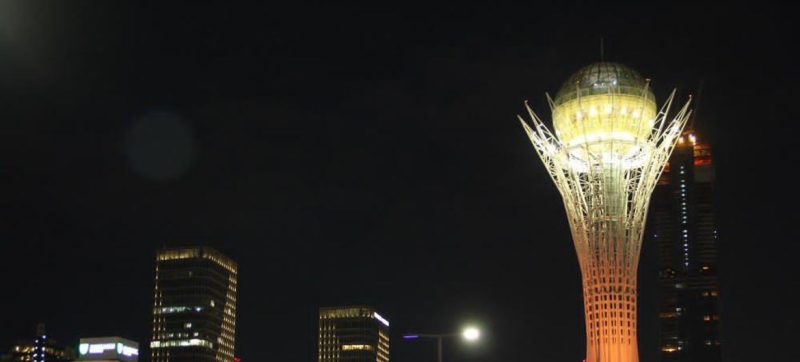
A view of Kazakhstan’s capital, Astana. UN experts: Kazakhstan should reject petition calling for anti-gay propaganda law Human Rights
The Kazakh government should reject a petition it is considering to pass legislation that would violate freedom of expression, peaceful assembly and association on the basis of sexual orientation and gender identity, independent UN human rights experts said today.
“This petition should never have been considered by the government in the first place and should be rejected,” rights activists said.
“The petition itself is based on prejudice, and any legislation resulting from it will inevitably and illegally trample on human rights,” they added.
The petition calls for a “law to completely ban open and hidden LGBT propaganda in Kazakhstan.” According to media reports, it has collected 50,000 signatures and was submitted to the authorities by citizens of Kazakhstan.
According to UN experts, the call to ban LGBT propaganda contradicts the Administrative Procedure Code of Kazakhstan, which prohibits the government from considering petitions whose implementation could lead to violations of human rights and freedoms.
If the government were to act on the petition and pass a law banning public expression of lesbian, gay, bisexual, and transgender (LGBT) identity, it would violate many rights, including freedom of expression and equality before the law, guaranteed by the International Covenant on Civil and Political Rights, which Kazakhstan ratified in 2005.
UN experts have previously expressed concern about similar draft laws on so-called LGBT “propaganda” in Kazakhstan, Kyrgyzstan, and the Russian Federation.
Russian authorities justified the adoption of a 2013 law on “propaganda of non-traditional sexual relations among children” by claiming that it would protect minors from “harmful influence,” and in 2022 introduced a complete legal ban on LGBT propaganda (among people of all ages) ages).
The Kazakh authorities should reject this petition, which is based on a misleading and discriminatory premise
Kyrgyzstan passed a similar law in 2023, effectively banning any public discussion of LGBT people and mischaracterizing information about “non-traditional sexual relations” as “harmful” to children. A petition submitted to Kazakh authorities also said the requested law was aimed at “protecting adolescents and children.”
“The Kazakh authorities should reject this petition, which is based on a misleading and discriminatory premise and calls for a law that violates human rights,” the independent experts said.
“Such a vaguely worded law will have a chilling effect on civil society organizations and human rights defenders and will contribute to a hostile environment in which discrimination and even violence will occur,” they added.
In 2020, Kazakhstan accepted a recommendation by UN member states to “guarantee an enabling environment for the activities of civil society, activist groups and human rights defenders” working on LGBT issues. If Kazakhstan adopts a restrictive “propaganda” law stemming from the petition, it would directly contradict the government’s commitment to its human rights obligations, experts warned.
The statement was made by Graham Reid, Independent Expert on protection against violence and discrimination based on sexual orientation and gender identity, Irene Khan, UN Special Rapporteur on the right to freedom of opinion and expression, Mary Lawlor, Special Rapporteur on the situation of human rights defenders, Gina Romero Rodriguez, Special Rapporteur on the right to freedom of peaceful assembly, and Farida Shaheed, Special Rapporteur on the right to education.
*Special Rapporteurs and independent experts are part of the so-called Special Procedures of the Human Rights Council. Special Procedures experts work on a voluntary basis; they are not UN staff and do not receive a salary for their work.
Read also:
